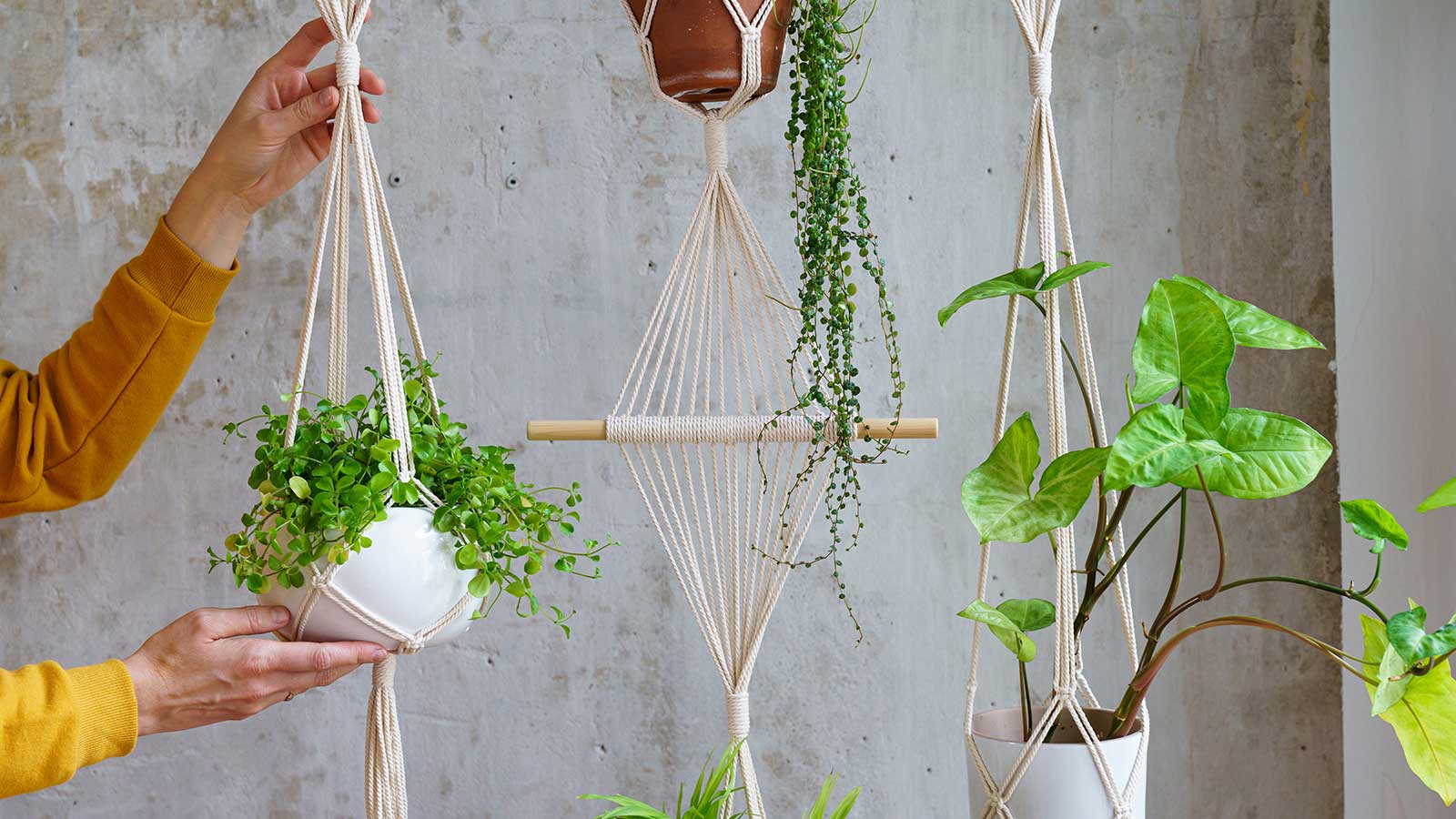
Q: I have a few trailing houseplants that currently live on various shelves and side tables around my apartment. I'd like to display them in more creative ways, and am wondering about hanging them from the ceiling. Do you have any advice?
A: Elevating suitable indoor plants can offer a few benefits. For starters, it can look fantastic, and is a great way to fill boring, blank spaces. It also frees up room for new leafy additions that aren't as well-suited to loftier heights.
What's more, hanging up a houseplant can improve its growing conditions: there's more room for it to spread out, and often, more light is available. Just don't forget to water them.
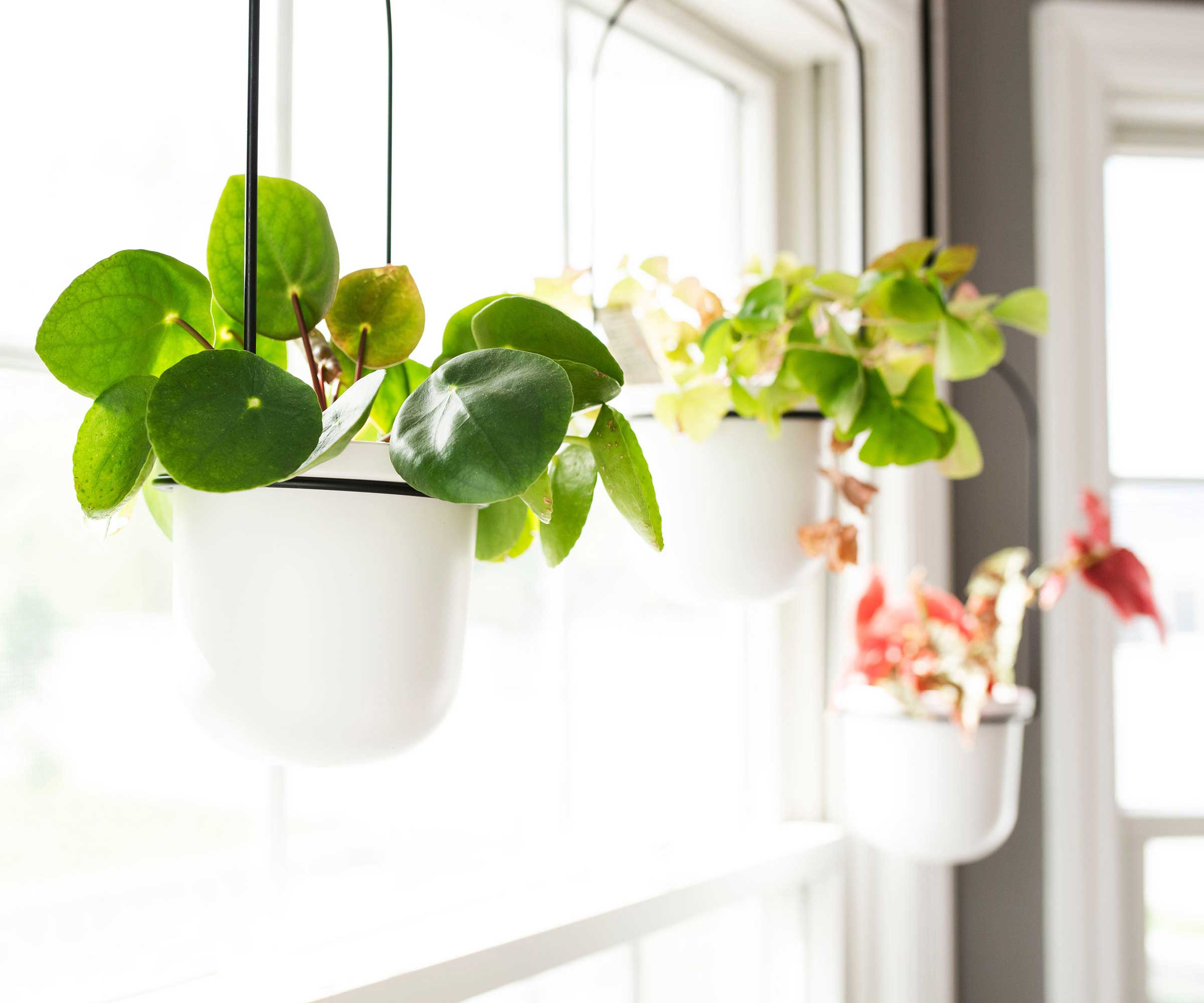
3 ways to display houseplants from the ceiling
Try these indoor gardening ideas to elevate your space.
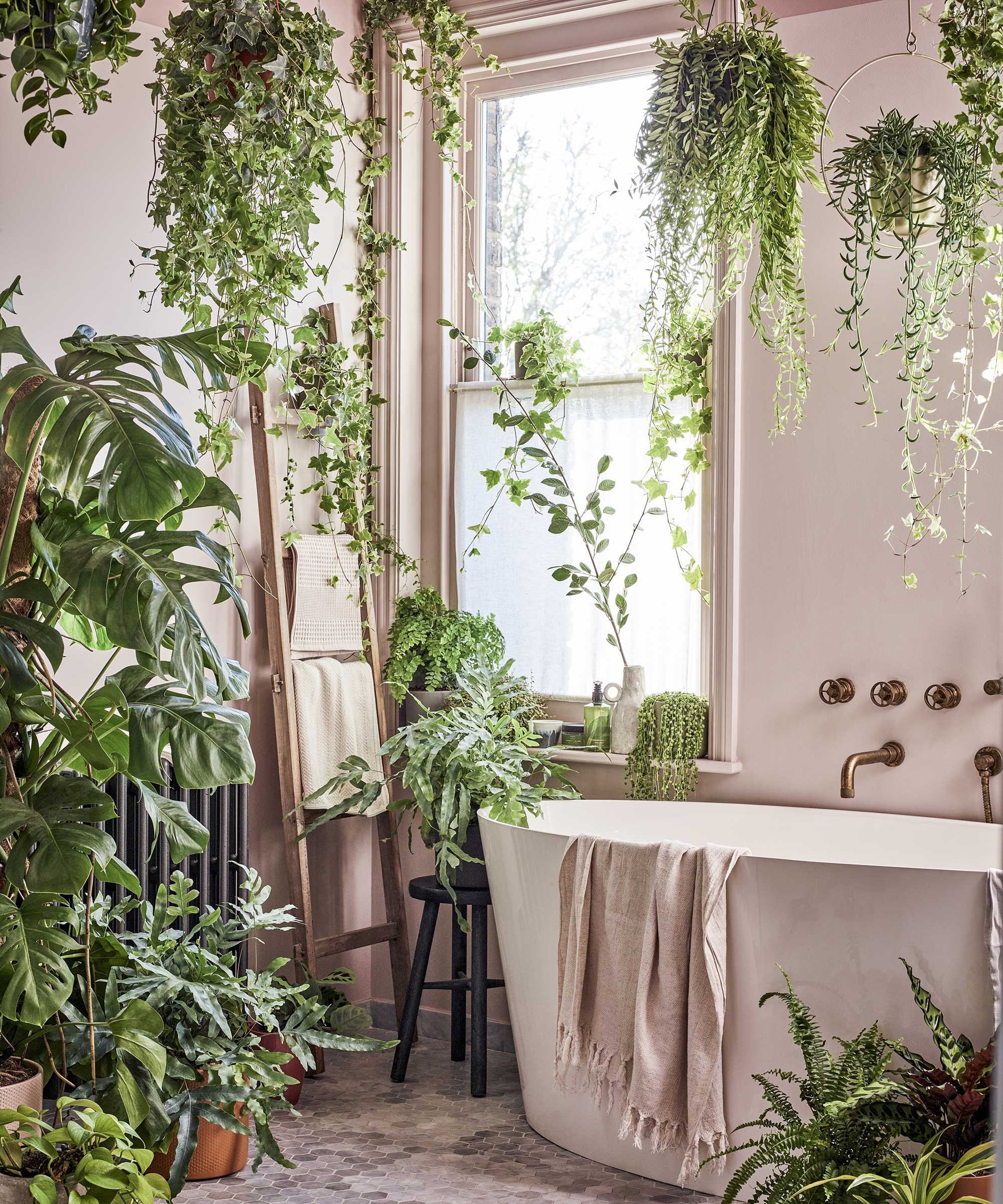
1. Use a hanging planter
Whatever your preferred style, there is a hanging planter to suit.
This earthenware planter from Terrain is perfect for a smaller plant. For something larger, these sphere hanging baskets, also from Terrain, can be lined with moss and planted up with a mixture of trailing plants. Kokedamas are another option.
And while some planters already have sturdy ropes attached, you can alternatively invest in a macrame plant hanger, such as this one from The Sill. It's ideal for adding a touch of boho-chic to a space – simply combine with a suitably sized pot.
Of course, you'll need something to hang your planter from, and it needs to be sturdy.
'You can easily hang a plant from a ceiling using a ceiling hook, which you can get at most hardware stores or online,' says plant expert Paris Lalicata from The Sill. You can install the hanger with or without joists, as long as you have the correct hardware, such as toggle bolts (for drywall without joists), she adds.
You can also get creative by hanging other items from the ceiling to hang plants from that aren't hooks, Paris continues. She suggests using preserved branches, or a small decorative ladder.
Ensure to take all necessary safety precautions when installing your hanging plants up high, and call in a professional to help if needed.
Top tip: Avoid hanging planters – particularly heavy ones – directly above seating areas or other spaces where people are likely to be, just in case of accidents.
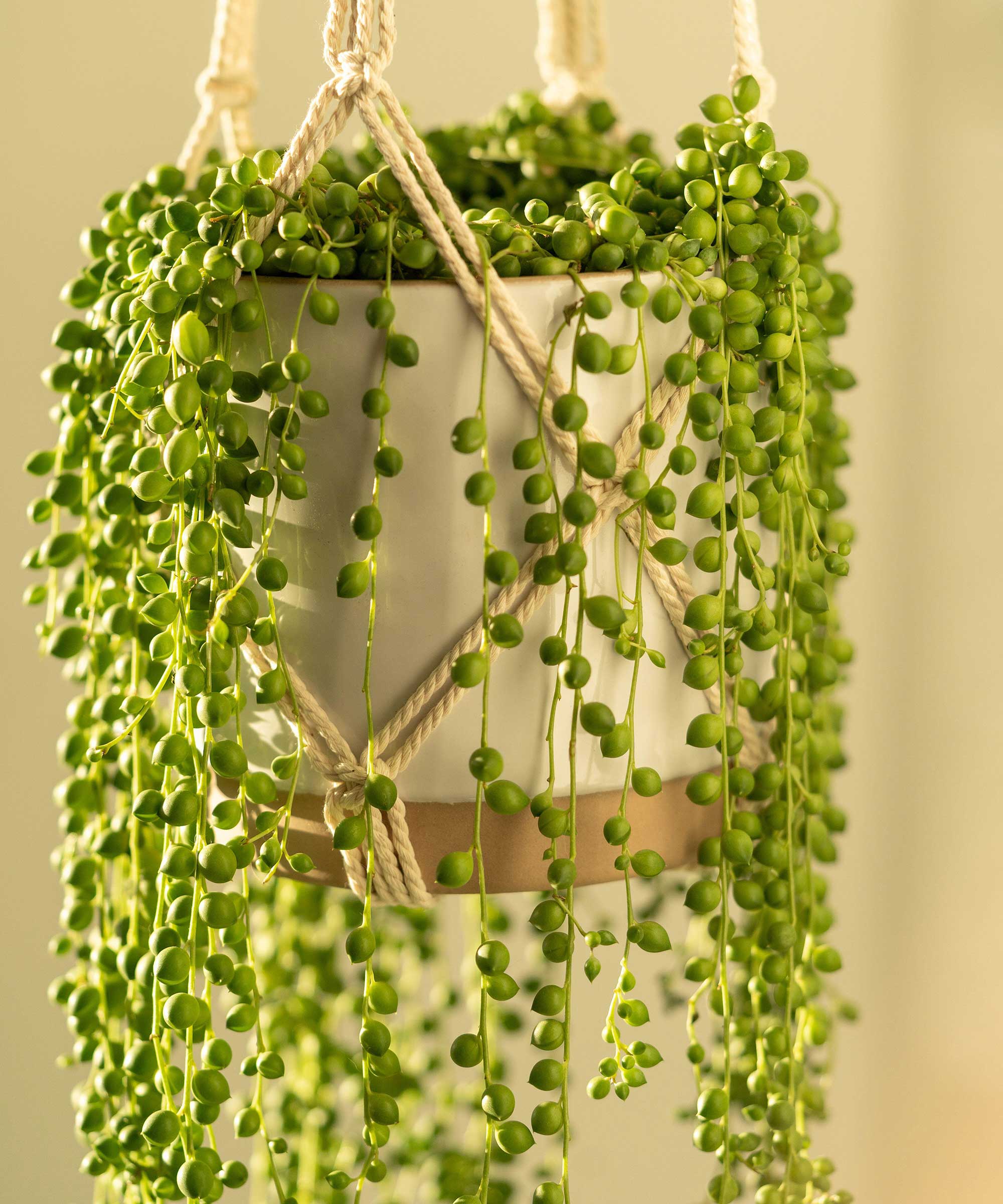
2. Add extra hooks for trailing stems
I have a hanging pothos in my kitchen, and this summer, one of the trailing stems grew so long that it reached the cabinet below. There is a lot of blank space to the side of the plant, so I stuck up a transparent Command hook (available from Amazon) to train the stem horizontally, up and around a corner. It took about a minute to do and there were no tools required.
The effect is super eye-catching and means that the plant can still grow. And, when needed, I can add another hook to continue to support the stem.
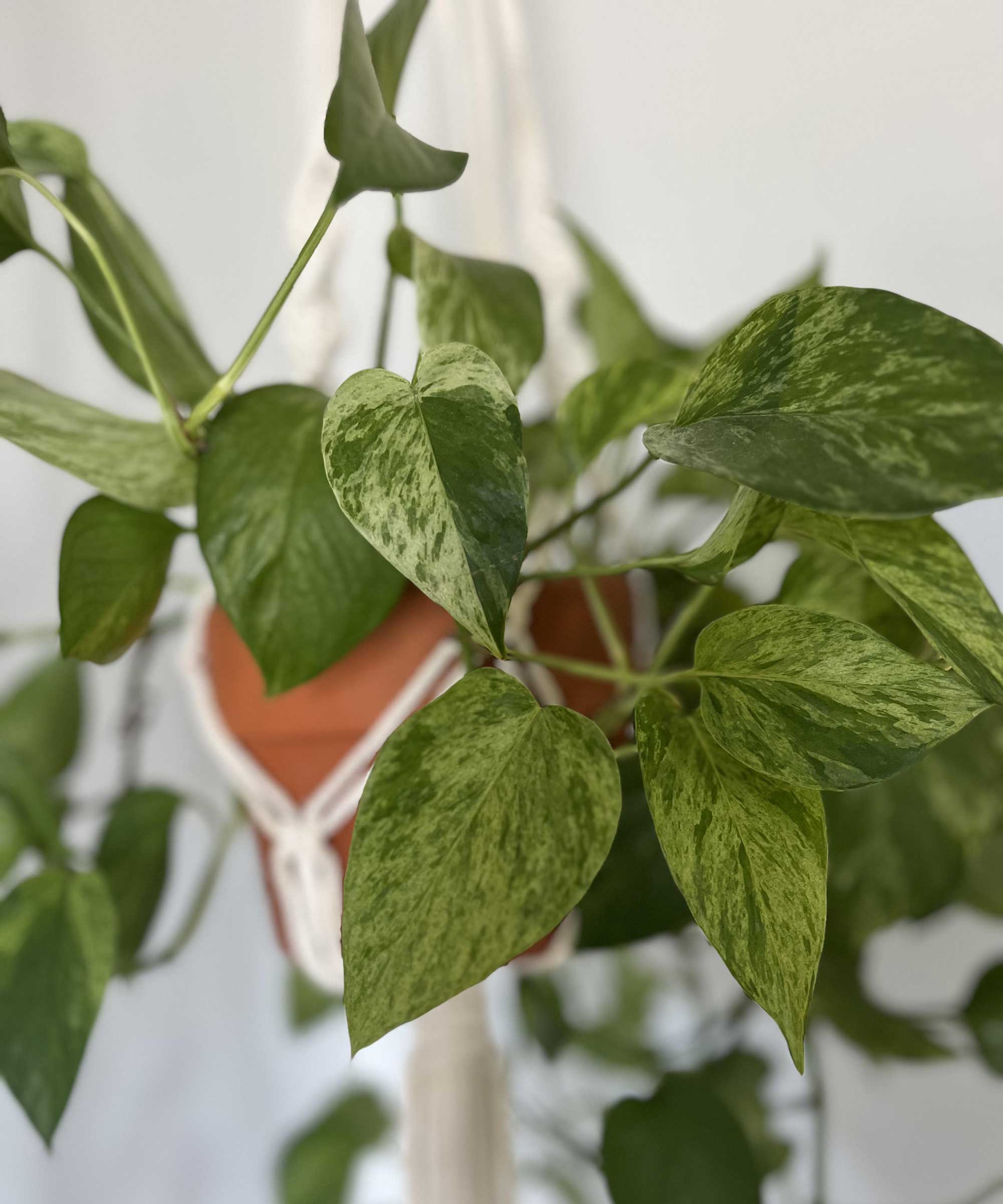
3. Try tension rods
Tension rods are having a moment right now for Christmas decor, but they can be useful year-round for showing off trailing plants in archways and alcoves.
It's crucial to use one that fits your space and can bear the weight of your plants and their pots. Always err on the side of caution when loading it up – it's best to stick to lightweight planters – and try to keep their placement across the rod balanced.
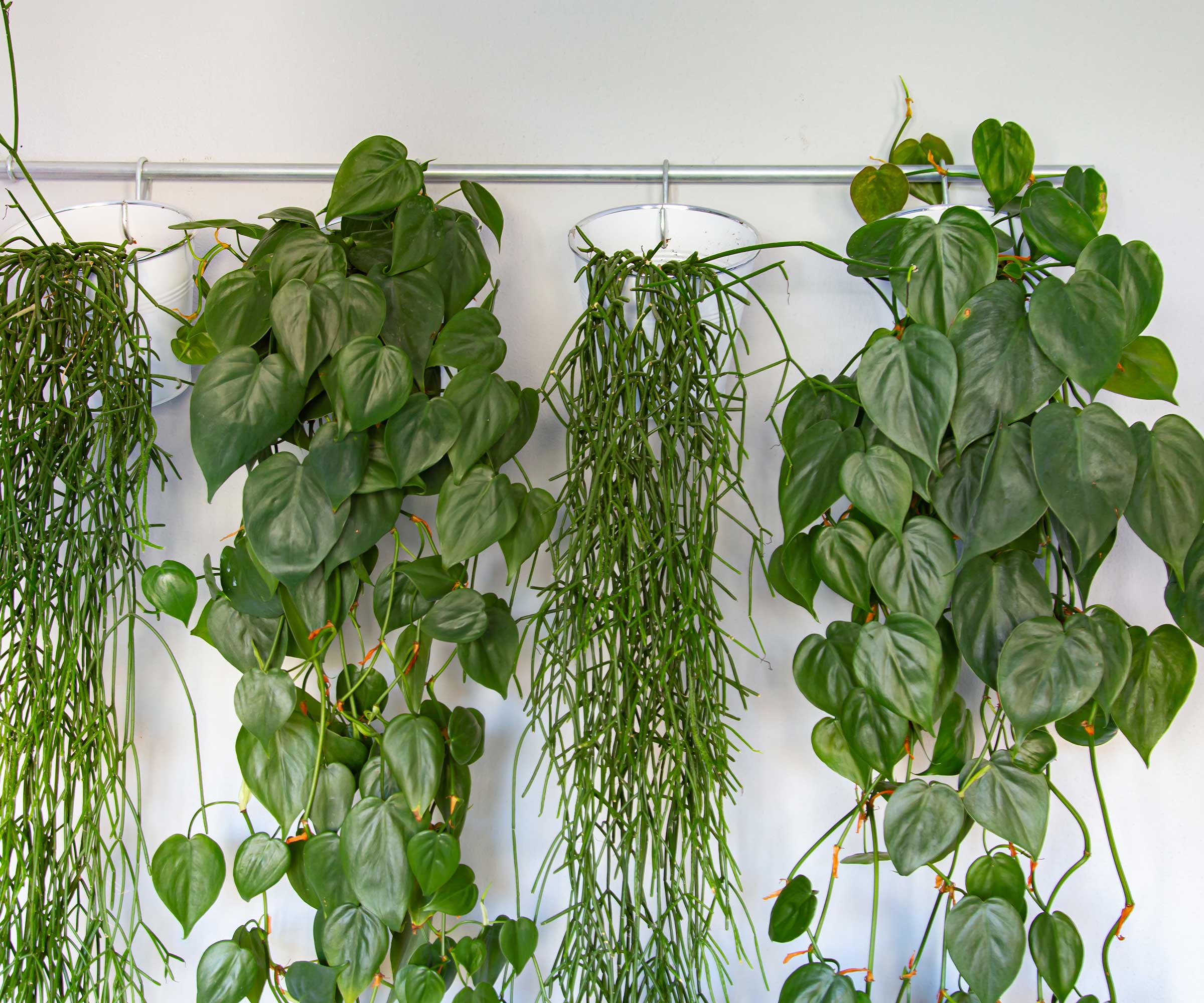
FAQs
Which houseplants are suitable for hanging from the ceiling?
Any plant is suited for this, says Paris Lalicata from The Sill. 'But traditionally, plant parents like to use trailing plants so vines cascade from the ceiling.' This can include plants like pothos, philodendron, tradescantia, maranta, and hoya, she lists.
I've also seen large hanging spider plants, complete with plantlets, which look very effective. Boston ferns, too, can create serious impact, especially if they're large.
Just ensure the light conditions are suitable for your choices. Pothos is a great example of a plant that can grow in shade, says plant experts Laurelynn and Byron Martin of Logee’s Greenhouses. 'But, a plant like a hanging bougainvillea would have to be grown in a bright, sunny window.'
How should you care for hanging plants?
Hanging plants will require their usual care routine. Remember to keep them safely away from central heating vents, as extreme temperatures can damage them.
Just because they may be a little more difficult to reach, avoid neglecting them when it comes to watering and misting. If the containers have drainage holes (or if you've planted an open hanging basket lined with moss), be aware that water will drip from the bottom after you've watered it, which can potentially damage surfaces below.
You can put a container underneath temporarily to catch the drips (this is what I do), or pop the plants in the sink or shower until the excess water has fully drained away. Alternatively, the use of macrame hangers is a good idea because you can put the saucer in and then the plant in it, as plant experts Laurelynn and Byron Martin point out.
You also have to remember to turn the plants because they will be reaching for the light source, they add. This will enable them to grow in a more balanced way.
Utilizing your ceiling is one of the best ways to decorate with plants, so why not give it a go at home? It will add an instant dose of botanical beauty to any space, be it your bathroom, bedroom, or kitchen.







